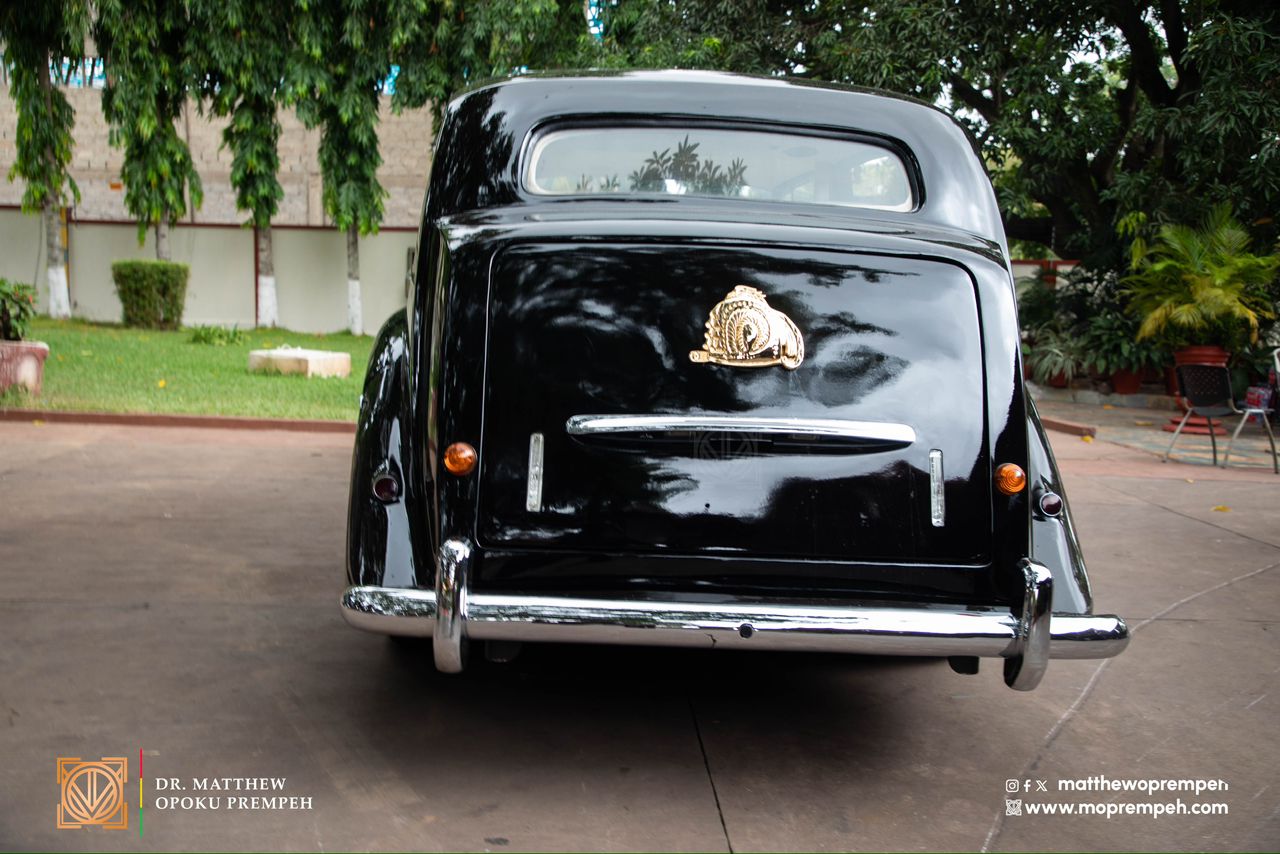Asantehene’s Rolls-Royce Phantom – A Timeless Symbol of Asante Heritage
Ghanaians would recall with nostalgia, that, during the 63rd Independence parade held in Kumasi in 2020, the Asantehene, Otumfuo Osei Tutu II, graced the occasion with a triumphant entry, riding in his gleaming, black vintage Rolls-Royce Phantom, to the adoration of the cheering crowd.
In fact, for many, this act of showmanship deepened the incontrovertible power of the king and the Golden Stool whose values he personifies. For others, it was the ever-flamboyant, rich Asante culture in an endless, almost seamless loop – the ancient readily and warmly embracing the modern.
Steeped in history and adorned with symbolism, this Rolls-Royce serves as a tangible link to the past, connecting three successive Asantehenes – Otumfuo Sir Osei Agyemang Prempeh, Otumfuo Opoku Ware II and the incumbent Asantehene, Otumfuo Osei Tutu II.
The story is told that this is the same vehicle Otumfuo Prempeh II rode in 1949 from Manhyia Palace to Sofoline, to open a new boys’ secondary school, my own beloved alma mater, Prempeh College.
According to credible sources, this particular model of Rolls-Royce, was sold only to buyers whom the manufacturer held in high esteem and deemed worthy of honour. These included the British monarchy and some heads of state.

As Otumfuo Osei Tutu II marks 25 years of occupying the Golden Stool, the unscathed existence of this Rolls-Royce serves as a poignant reminder of the responsibilities that come with leadership. Beyond the trappings of power, there lies a solemn duty to safeguard the heritage entrusted to his care. In the painstaking preservation of this venerable vehicle, the Asantehene reaffirms his commitment to upholding the values and traditions that have sustained the Asante kingdom for centuries.
The maintenance narrative surrounding the Rolls-Royce is a reflection of the Asantehene’s meticulous attention to detail and total reverence for tradition. In a rapidly changing world, where traditions often yield to modernity, the sight of the Asantehene’s procession, with the iconic vehicle at its helm, is a reminder of the kingdom’s enduring spirit and the ease with which our traditional systems blend with the realities of 21st-century technology and trends. It is evidence of the strength of cultural identity and the importance of honouring the legacies of those who came before.
Once again, in a display of sobriety, Otumfuo gracefully rode in this car on Sunday, 12th May 2024 to serve his forebears at the Akwasidae-kese durbar that climaxed the 25th anniversary of his enstoolment as the 16th occupant of the Golden Stool. Hours earlier, the king used the car to serve at Mampenase and Akyremade amidst cheers from the principal streets of Kumasi. It was after this, that the glittering Sika Dwa Kofi, sitting proudly on the shoulders of a courtier, led him to the Dwabrem grounds.
He journeyed the next day to the royal mausoleum at Breman a day earlier in the car, embodying a deep sense of respect for his forefathers. The spiritual underpinnings cannot be overemphasized – the spirits of two of his predecessors live in this car.
In its polished chrome and elegant lines, one finds not just a car, but a symbol of continuity, resilience, and adoration for the past. In the hands of Otumfour Osei Tutu II, it remains a beacon of hope for future generations, guiding them forward, whilst reminding us of our ineffaceable past.
Long Live the King!



